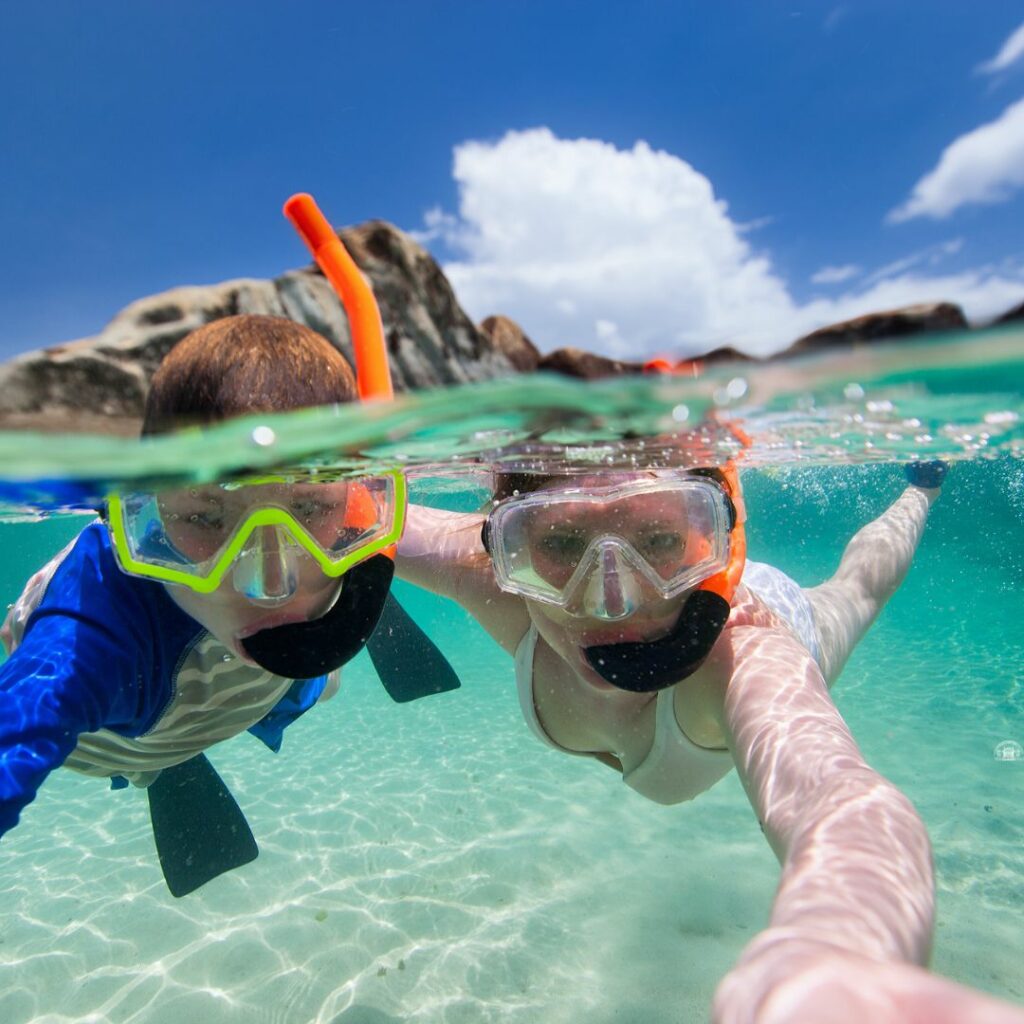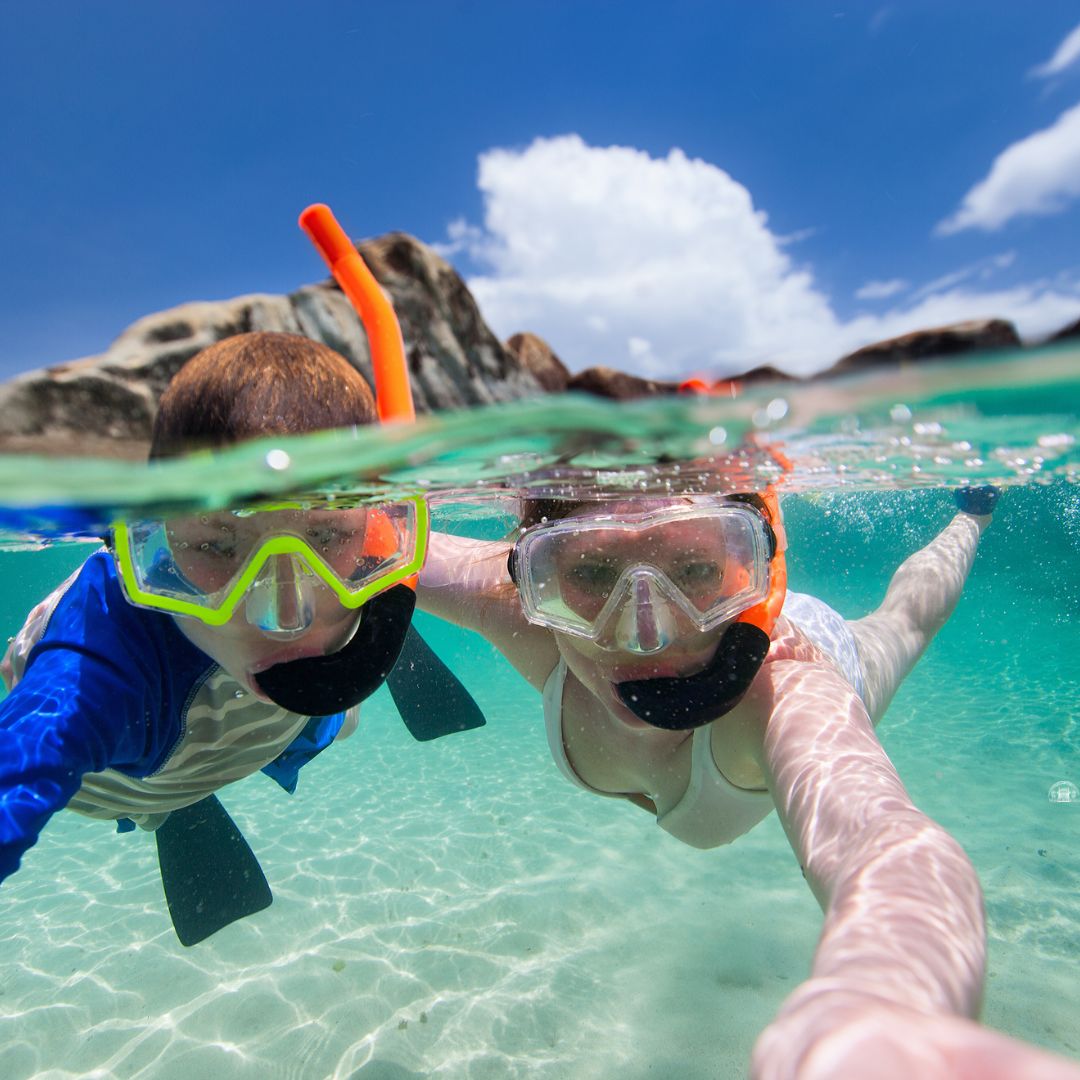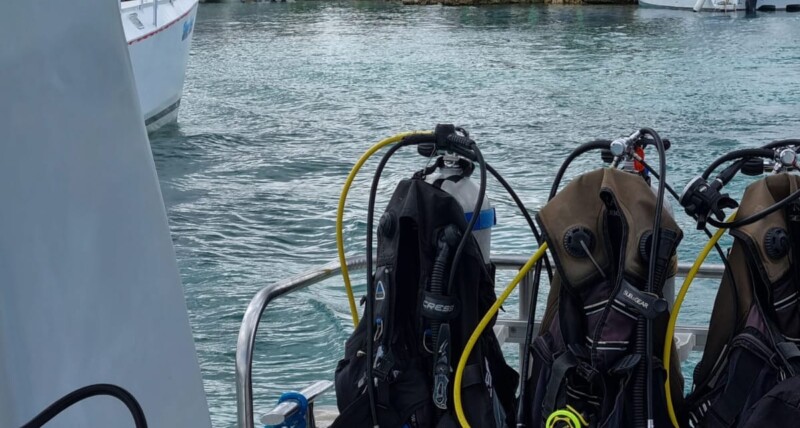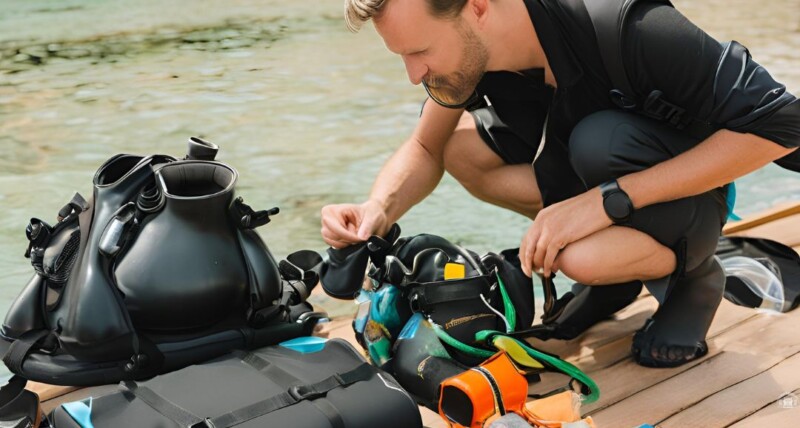5 key points from the article:
- It is possible to snorkel without knowing how to swim, but it requires taking proper precautions and using the right equipment, such as snorkel vests and life jackets.
- Knowing basic swimming skills like floating, treading water, and simple strokes can enhance the snorkeling experience and increase safety, but they are not strictly mandatory.
- For non-swimmers, it is essential to choose safe snorkeling locations with calm, shallow waters and low currents, preferably guided tours designed for beginners.
- Practicing in shallow waters, learning floating techniques, and snorkeling with a buddy are crucial tips for non-swimmers to build confidence and stay safe.
- While snorkeling without swimming skills is possible, it comes with potential risks, such as difficulty staying afloat, panic in deeper waters, and limited ability to respond to currents or waves, so it’s crucial to take extra precautions.
Understanding Snorkeling
Snorkeling is a popular water activity that allows individuals to observe underwater life in their natural habitat. It’s an accessible sport, often enjoyed in warm, clear waters teeming with marine life. Unlike scuba diving, snorkeling requires minimal equipment and training, making it an attractive option for many.
The Basics of Snorkeling
To snorkel, you’ll need a few essential pieces of equipment:
Snorkel Mask
A snorkel mask is crucial as it allows you to see clearly underwater. There are various types of masks available, from traditional masks to full-face masks that cover your entire face and provide a more comprehensive field of vision.
Snorkel Tube
The snorkel tube is what enables you to breathe while your face is submerged in water. Different types include the classic J-shaped tube and more advanced versions with purge valves and splash guards to prevent water entry.
Fins
Fins help you swim efficiently and effortlessly through the water. They come in different styles, such as full-foot or open-heel fins, and choosing the right one can enhance your snorkeling experience.
Optional Gear
Optional gear like wetsuits can provide warmth and buoyancy, while safety vests can offer additional flotation support, especially for non-swimmers or beginners.
Swimming Skills and Snorkeling
While swimming skills are beneficial for snorkeling, they are not always mandatory. Understanding the relationship between swimming skills and snorkeling can help determine how to approach the activity safely.
Snorkeling Without Swimming Skills
It is possible to snorkel without knowing how to swim. Many tour operators offer guided snorkeling experiences in shallow, calm waters, specifically designed for non-swimmers.
Advantages of Knowing How to Swim
Knowing how to swim increases safety and confidence in the water. Swimmers can maneuver more easily, explore more extensive areas, and handle unexpected situations better.
Risks of Snorkeling Without Swimming Skills
Non-swimmers face potential dangers, such as difficulty staying afloat, panic in deeper waters, and limited ability to respond to currents or waves. Therefore, it’s crucial to take extra precautions.

Learning to Snorkel Without Swimming Skills
For non-swimmers eager to snorkel, here are some beginner tips:
Using a Snorkel Vest
Snorkel vests provide buoyancy, helping you float comfortably on the water’s surface. They are especially beneficial for beginners and non-swimmers.
Choosing Safe Snorkeling Locations
Opt for locations with calm, shallow waters and low currents. Guided tours often take place in these environments, offering a safe and enjoyable experience.
Practicing in Shallow Waters
Start by practicing in shallow waters where you can stand. This builds confidence and helps you get accustomed to the equipment.
Floating Techniques
Learning to float is key for non-swimmers. Practice lying on your back and stomach, staying relaxed to maintain buoyancy.
Breathing Exercises
Practice breathing through the snorkel while on land before entering the water. This helps you become comfortable with the breathing pattern.
Snorkeling with a Buddy
Always snorkel with a buddy, especially as a beginner. A companion can assist in emergencies and provide support.
Learning Basic Swimming Skills for Snorkeling
While not mandatory, learning basic swimming skills can significantly enhance your snorkeling experience:
Essential Swimming Techniques
Basic skills like floating, treading water, and simple strokes (such as the dog paddle or breaststroke) are beneficial.
Enrolling in Swimming Lessons
Professional swimming lessons can fast-track your learning, providing structured and safe instruction.
Practicing in a Controlled Environment
Begin in a pool or calm, shallow waters to build your skills and confidence before venturing into open water.
Safety Precautions for Non-Swimmers
Safety should always be a priority. Here are essential tips for non-swimmers:
Using a Life Jacket
A life jacket ensures buoyancy and is crucial for safety. Make sure it fits properly and is suitable for snorkeling.
Staying Close to Shore
Stay within a safe distance from the shore to minimize risks and ensure you can quickly return to safety if needed.
Snorkeling in Groups
Snorkeling in groups provides added safety, as more people can assist in case of emergencies.
Snorkeling with Private Dive Service!
At Private Dive Service, we plunge into the world of scuba diving to take your underwater experience to the next level. Based in Punta Cana, we specialize in providing customized and thrilling diving services to meet the needs of all our clients.
Explore our website to discover more: Private Dive Service
Don’t miss the chance to explore the underwater world with us! Contact us today.
Need immediate assistance? Connect with us via WhatsApp!: Chat with Us
Let’s venture together into the depths of the ocean with unforgettable diving experiences!
Frequently Asked Questions
Can you snorkel if you can’t swim?
Yes, with the right equipment and safety measures, non-swimmers can snorkel safely.
What equipment is essential for non-swimmers to snorkel?
Snorkel vests, life jackets, and staying in shallow waters are crucial for non-swimmers.
Is it safe to snorkel in deep water if you can’t swim?
No, it’s best to stick to shallow, calm waters where you can stand and feel secure.
How can I build confidence in the water as a non-swimmer?
Start by practicing floating and using snorkel gear in shallow water, and always snorkel with a buddy.
Are there snorkeling tours specifically for non-swimmers?
Yes, many tour operators offer guided snorkeling experiences tailored for non-swimmers.
What are the best locations for non-swimmers to snorkel?
Calm, shallow waters with minimal currents are ideal, such as protected bays or lagoons.
Conclusion
While knowing how to swim can enhance the snorkeling experience, it is not a strict requirement. With the right equipment, safety measures, and a bit of practice, non-swimmers can also enjoy the wonders of snorkeling. Always prioritize safety and choose locations and tours that cater to beginners to ensure a safe and enjoyable adventure.



